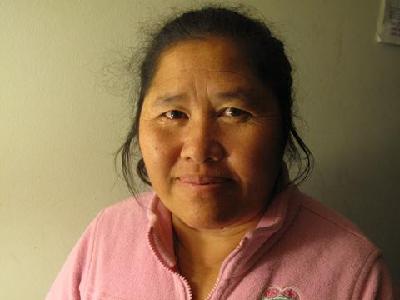
Call-in radio
Each day around the world, thousands of Southeast Asians pick up their telephones to listen to the radio.
They tune in to one of at least 20 different teleconferences that broadcasts like regular radio stations. But instead of flipping a switch to pick up the signal, they make a call.
A woman in California sings to hundreds of people on one teleconference line. The song encourages youth to keep Hmong culture alive.
Cher Vang listens in her living room in Washington state. She's middle-aged and, like many Hmong people, war has scattered her family all over the world.
"My family went everywhere on earth." says Vang. "I have three brothers. They live in Australia. I haven't seen them in 30 years. My older sister lives in California. One sister lives in Laos, my country."
Easing sense of isolation
When Vang arrived in America, it was easy for her to feel isolated.
"I came to the United States and married my husband in 1986." she says. "I didn't know how to speak English. I didn't know how to drive. It was very, very hard for me."
That's where the teleconferences come in. One of the purposes is to connect isolated Hmong people - especially people like Vang, who never got to go to school or learn to use computers.
Washington state has a small Hmong community but, when Vang calls into a teleconference line, she can connect to a much bigger group.
Tseng Yang is one of the founders of a teleconference line called LongCheng Radio. He explains that the station offers 24-hour-a-day programming with different shows featuring music, ghost stories, economic news and more.
Yang estimates 3,500 people call to listen to LongCheng Radio every day. The nightly news is the station's most popular show. The hosts translate global news into Hmong, Yao and Laotian.
Sharing milestones
But the teleconferences are also a global forum for Hmong people around the world to share their own local news with one another. People can call in to report important events, like the death of a community leader.
"If something happen, you know, important elderly for the Hmong community who pass away in Salt Lake City, nobody know, right? So we also open for them to tell us." says Yang.
Longcheng Radio is based in Minnesota, but its programs include reports from Hmong communities in Europe and Southeast Asia with news that matters to them.
"They just have like half an hour of news telling what they're doing down there, planting crop, corn and weather." says Yang.
Today, Cher Vang in Washington state participates on the teleconferencing line by singing a traditional love song from home.
She says sharing with others over the phone helps her connect to people who have gone through the same challenges, like losing their family to war and trying to make a new life in a foreign country.
"Me, I was so mad. I felt so bad for myself. Sometimes I would just go crazy," she says. "Thinking about everything too much, remembering. I was thinking, thinking, 'Oooh, maybe I'm the only one in the world who has these problems. Maybe there's no one like me, no one is living through what I have.'"
But realizing that everyone on the phone line understands her life, she says, makes her feel better and makes her happy.
Hmong: a member of a people living traditionally in isolated mountain villages throughout Southeast Asia. Large numbers have emigrated to the US. 赫蒙族
Young Navajos leave reservation life behind to seek jobs
Most states see increases as Hispanic population grows
'Maximum INDIA' brings India's sights and sounds to Washington
A look into the life, music and art of American Indians
(來源:VOA 編輯:崔旭燕)
